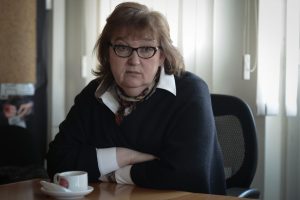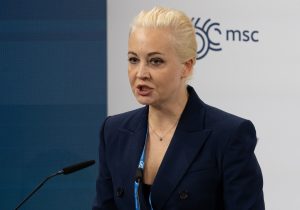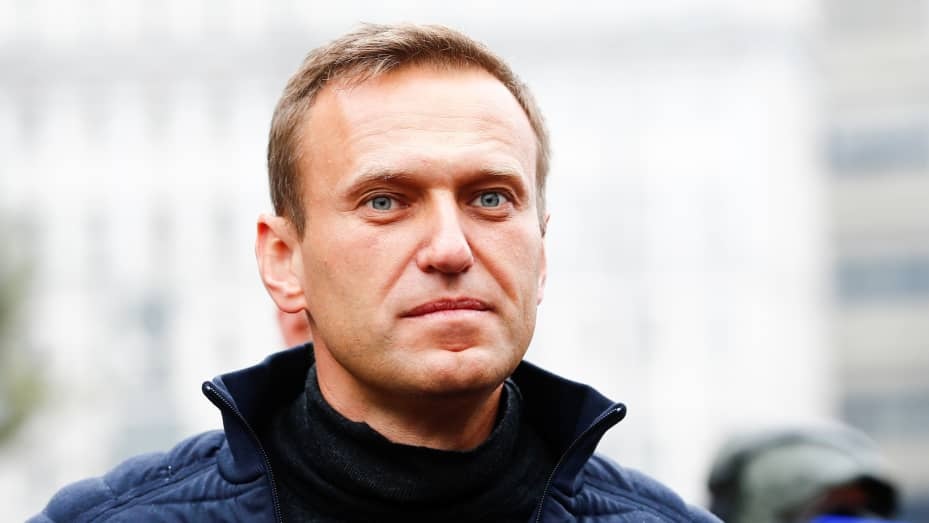The mother of the Russian opposition politician who died in prison , Navalny’s, mother said her son showed no signs of illness. “I saw him in the jail on February 12. He was alive, healthy, optimistic,” Lyudmila Navalnaya wrote on Facebook late on Friday.

For more than three years, Navalny was locked in several Russian jails – where he complained of severe back pain that made his feet numb and of “torture with insomnia” because of constant bright light in his cell.
Of the 37 months of his prison time, he spent 296 days in solitary confinement in box-like concrete cells where prisoners are not allowed to lie down during the day and can only sit on a bench that is 14 centimetres high and has no back to lean upon, his lawyers said.
Alexey Navalny’s wife, Yulia Navalnaya, has said Russian President Vladimir Putin and his government will be “brought to justice” for the death of her husband.
“I want them to know that they will be punished for what they have done with our country, with my family, and with my husband,” she said at the Munich Security Conference on Friday, adding that she does not have confirmation of her husband’s death.

Pre Determined Murder
“Navalny died as a result of murder – a premeditated murder, a methodically executed murder, a murder the Russian state is to blame for,” OVD Info, a human rights group that has been monitoring arrests and persecution of Kremlin critics, said in a statement late on Friday.
“There’s no need to poison or kill him in some other violent way – one just has to wait,” it said.
But Navalny was previously poisoned.
In July 2019, he was hospitalised with an “acute allergic reaction,” swellings and a rush, Russian medical doctors said, but never released the cause.
Navalny and his personal doctor said he had no allergies and the “reaction” was caused by an unspecified poison.
A year later, while on a plane over Siberia, he collapsed, fell into a coma and was rushed to a hospital after an emergency landing and then flown to a German clinic.
A conclave of German experts concluded Navalny had been poisoned with a rare and expensive nerve agent from the Novichok family of toxins developed in the USSR.
Navalny’s team and independent reporters said they had identified the purported poisoners, a group of Russian intelligence officers, and Navalny called one of them pretending to be a security official.
The officer, identified as Konstantin Kudryavtsev, told him the nerve agent was applied to the politician’s underwear, according to their conversation’s recording Navalny released. The Kremlin denied those claims.
After months of rehabilitation in Germany, he returned to Russia, was immediately arrested and stood several trials that his supporters, rights groups and Western governments called Kremlin-orchestrated.
He was serving three sentences, including a 19-year prison term for “extremism,” but remained the biggest thorn in Putin’s side. Despite arrests and emigration of its members, his Fund to Fight Corruption kept releasing investigative reports detailing corruption in the Kremlin halls of power.
Navalny remained active on social media with sarcastic posts ridiculing Putin and calling his full-scale invasion of Ukraine a “nightmare”.
His last Facebook post was dated February 14, Valentine’s Day, and addressed his wife Yulia “whom he loved more and more”.
Even though Putin amended Russia’s constitution to “nullify” his previous terms and run for re-election in March 2024, analysts believe that he saw Navalny as one of the biggest threats to his power. In a February 1 post on Facebook, Navalny urged Russians to show up at polling stations “exactly at noon” to vote against Putin.
“Navalny’s death, unfortunately, was predictable from the moment he took a plane to Moscow,” Nikolay Mitrokhin of Germany’s Bremen University told Al Jazeera.
(AL Jazera )







